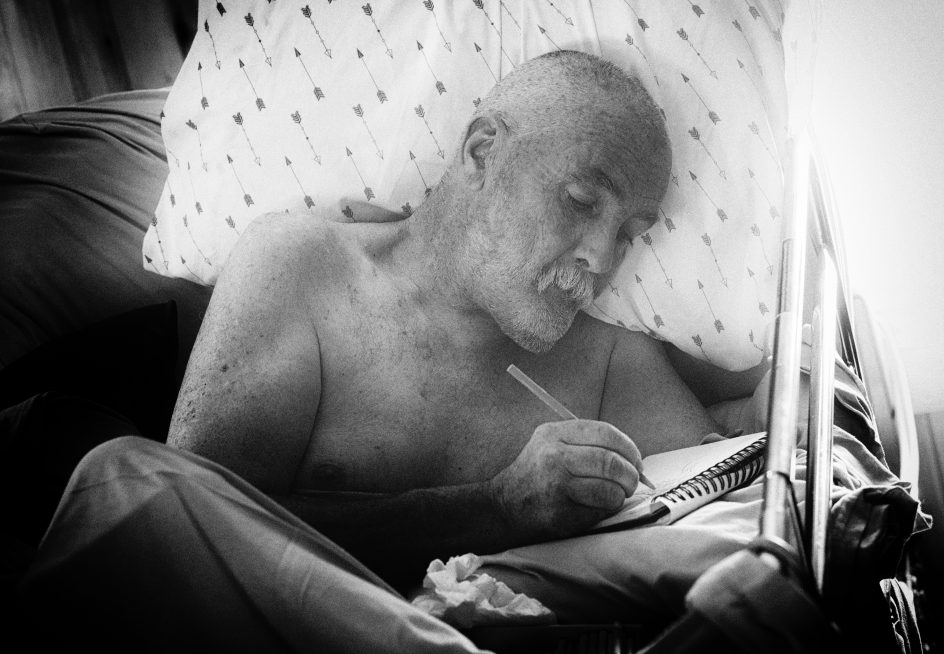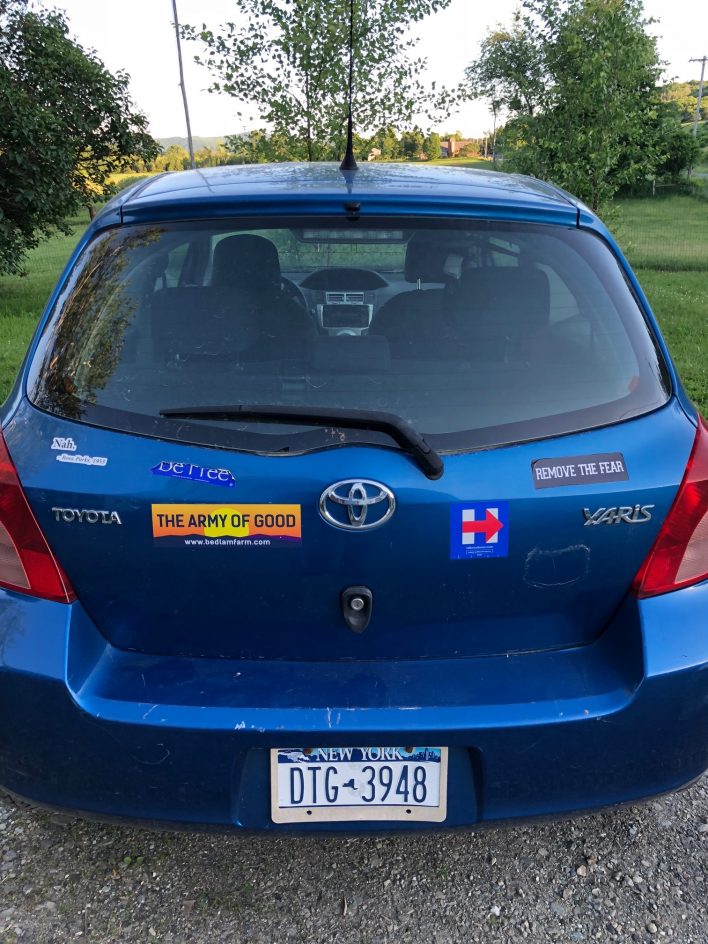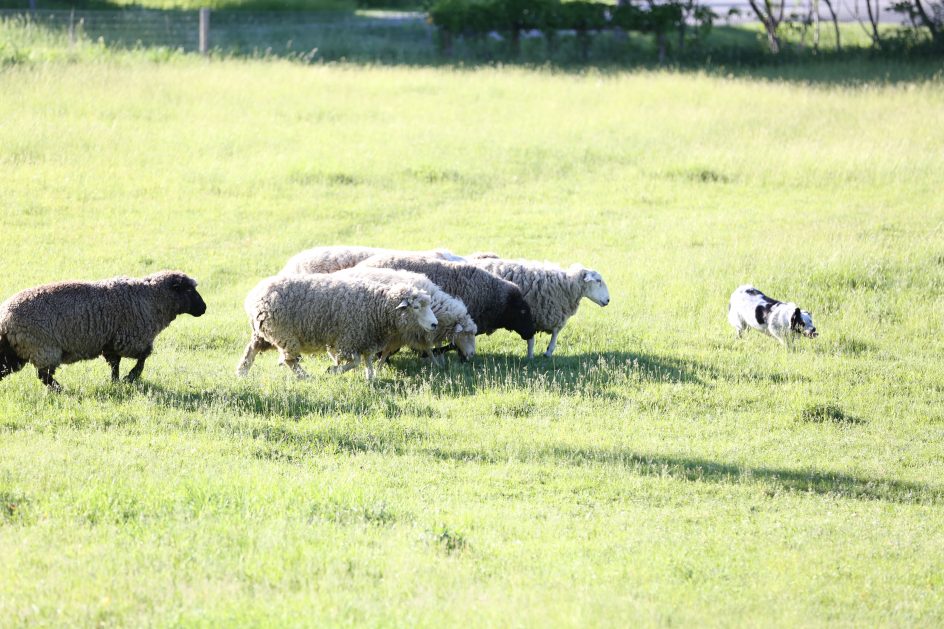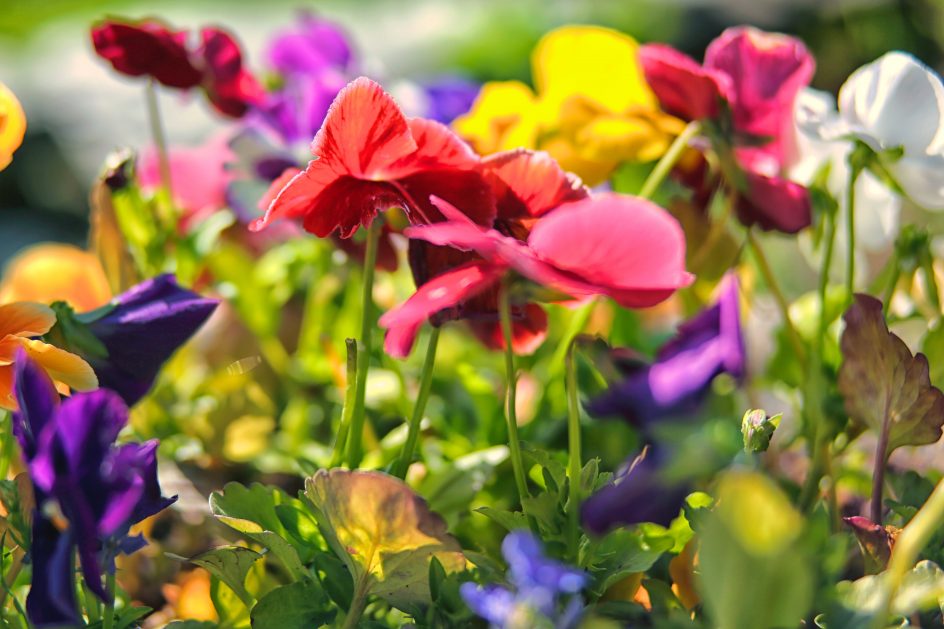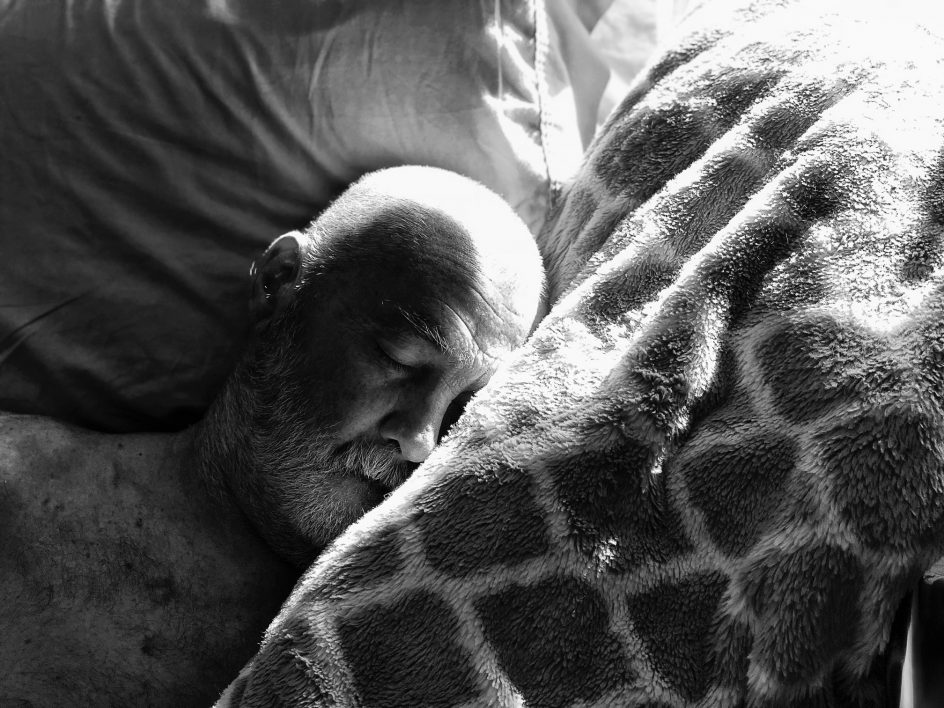
I have often written how unfortunate it is that death is often seen only as sad, and it is certainly that. But it also brings extraordinarily beautiful and profound moments,. It can be a mystical and spiritual experience.
It can be a time of joy and celebration. it can open our hearts as few things can.
I experienced several of those moments today, sitting with Ed for several hours while Carol went out to go to the bank and do some grocery shopping. It seems I have drifted into old and familiar ground, that of the hospice volunteer who offers respite to the caregivers and listens to the dying.
Only Ed and I are very close friends, and that makes it quite different.
Mostly, Ed slept while I sat quietly and read a novel. At moments, he knows I am there, mostly not.
In the late afternoon, is quiet and peaceful at the Gulley’s, Ed sleeps most of the day now, and once in a while talks a little. The farmers and cousins and friends don’t come much in the afternoon, it is quiet.
Sometimes, Ed will open his eyes and smile at me or mutter some words and then fall back asleep. I believe he is descending into a coma-like sleep now, and if so, that would be the best outcome for him. Everyone who dies does so in their own individual way.
With brain cancer, the doctors say the deep sleep drifting into coma is the best way.
In hospice, they call the face of the dying the “death mask” at the end, the patient’s face is drawn and distorted, like a death mask would be. There was no death mask on Ed’s face today, he looked younger, stronger, he looked to be at peace.
I don’t take photos of the death mask.
I believe the angels – or spirits, as some prefer – have entered his consciousness and are doing their work with him. He has begun to dance with them now.
The trajectory of the illness is shifting to this deep sleep and unreachable sleep.
At one point, the light came in through the window and touched Ed’s forehead, and I had no doubt that there were spirits in the room come to visit him and prepare him for the next chapter. I said Ed is larger than life, and he is.
I closed my eyes, and was mesmerized by the silence.
It was impossible not to feel the presence of something from another place when I saw the way in which the light touched him and the farm went totally quiet – no barking dogs, complaining cats, no Cockatiel shouting, no clucking hens, mooing cows, grumbling refrigerator, laundry spinning, taunting crows, no tractors in the field, no clothes washer spinning, nothing on the radio, no grandchildren talking or playing, no cars and trucks rumbling by the house, no neighbors visiting.
It took my breath away.
For a few minutes, absolute silence, and then the world came awake again, and the farmhouse and barns were filled with sounds. Perhaps his own spirit was coming and going, or preparing to leave. I don’t know what was happening, only that something was.
Ed looked completely at peace today, almost like a statue or sculpture. I don’t recall seeing this look before.
Something was occurring in that room, I could feel it all over my body.
And then Ed’s son Jeremy came in to check on his father.
When Jeremy was a teenager, he was nearly killed in an awful tractor accident that left him in a coma for 40 days, Jeremy is perhaps the closest to Ed in understanding what he is feeling and needing now, and what he can’t bear to feel or need. Ed says he believe one reason Jeremy’s accident occurred was to prepare him for now.
Jeremy and I had never really been alone before, although I had heard about his awful accident and his grueling recovery.
I asked Jeremy how he is doing, and we had a good talk, our longest, Jeremy, the youngest, is deep and thoughtful and angry – about what happened to him, about losing his father. All he wanted to be when he was younger, he said was Ed. How awful for him to relieve a personal tragedy.
I told him he might need to speak to someone about this, he was a victim also, and I gave him my numbers. The farm people are doers, not talkers.
I’d like to talk more with him. He has been to a place few of us get to go, and where his father is now. That is a connection, for sure, one that almost no one can really share. And he is hurting as much as anyone.
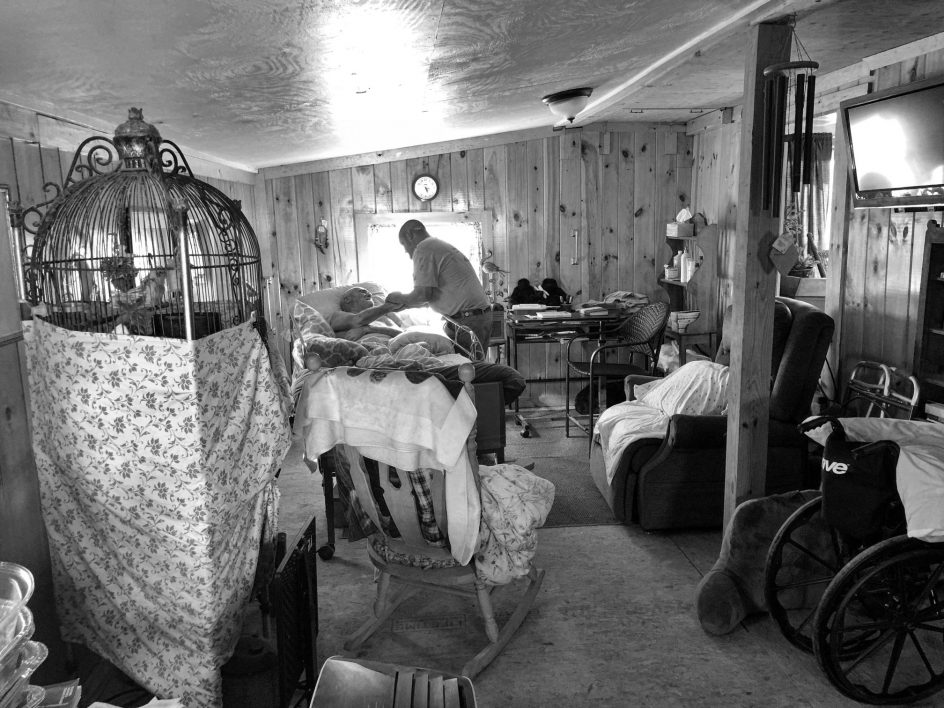
Jeremy always wanted to be just like his father, he says, and now he tends to Ed in the most personal of ways. The two have been drawn together in the most powerful of ways by Jeremy’s accident and Ed’s cancer.
Jeremy learned over Ed and took his hand and Ed started crying, and I left the room so they could be together and talk privately. They talked to one another intensely.
Jeremy left after five or ten minutes to hay the fields. I felt close to him. He thanked me for being Ed’s friend. Jeremy is his own story of courage and rebirth. Jeremy understands acceptance, he understands what is happening and where it is going.
It was a very beautiful thing to see the connection between father and son, the love and the trust passing between them, so strong and thick you could touch it.
Jeremy said he and Ed fought all the time, they were both bull-headed and resentful of authority. But now…it was different.
Death can be like that, profound and meaningful.
The scene was sad, but also beautiful, a testimony to what is so unique about the human spirit. No other creature on the earth feels the things that we do.
I’m going back tomorrow afternoon, as I usually do. I’ll bring corn and blueberries or peaches, as I usually do. Carol and I will sit for awhile and talk. She is slowly accepting what is happening. I just listen to her, she doesn’t need any advice.
I receive a lot of messages urging me to tell Carol or Ed about this cure or that, or this treatment or that, but I refuse to do that. Ed’s medical treatment is not my business, and I don’t interfere with it. Carol and Ed have a doctor they love and listen to, and it is not for me to give them medical advice, especially from strangers on the Internet.
That is not why I am there.
In many ways, as I wrote yesterday, Ed is already gone. He is up at night, struggling to rest, but alway asleep now when I come. We talked briefly and he said he was ready to go, he didn’t wish to live like this any longer.
He also said he had to go out and tend to a sick cow. Carol said he said the same thing to her last night, she told him that he already had taken care of the sick cow.
There was no talk today of walking or visiting the cows. Perhaps that will come another day.
Carol is struggling to know what to wish for.
She doesn’t want to let him go, she doesn’t want him to suffer.
There is no easy place to be for her right now, but she is strong and thoughtful, and loves Ed very much, and she will do what she needs to do and decide what she needs to decide.
Should he be encouraged to eat? Walk? Take more medicine?
Or given permission to let go, as he says every day he wishes to do? There are all kinds of questions, there are no easy answers.
I remembered a scene from Jenny Downham’s book Before I Die:
“It’s all right, Tessa, you can go. We love you. You can go now.’
‘Why are you saying that?’
‘She might need permission to die…’
‘I don’t want her to. She doesn’t have my permission.”
I found my visit today uplifting, I left feeling strong and grateful for my life.
I read half of a novel sitting there, held Ed’s hand for a few minutes, gave him some water, and I remembered yesterday, when he asked me what he had done to deserve to be stricken in this way.
I brought a poem that a long-time blog reader and cancer survivor named Lorlee e-mailed to me. She went to a cancer writing workshop and the exercise was to write to cancer, and have cancer write back.
This, she said, sharing the poem, is what cancer wrote back toher. She thought it might help Ed to not blame himself for something that is not his fault:
The poem is called “It Is Not Your Fault.” I read this to him this afternoon.
“I am random
I am not selective of my victims
Don’t take it personal.
I am simply a force in nature,
scattershooting.
I am not malevolent.
Just haphazard.”
I told Carol I would be happy to go sit with Ed Thursday afternoon. Tomorrow. It is the right place for me to be. Maria wants to come, it’s on the way to belly dancing class. All around us, life is everywhere.

